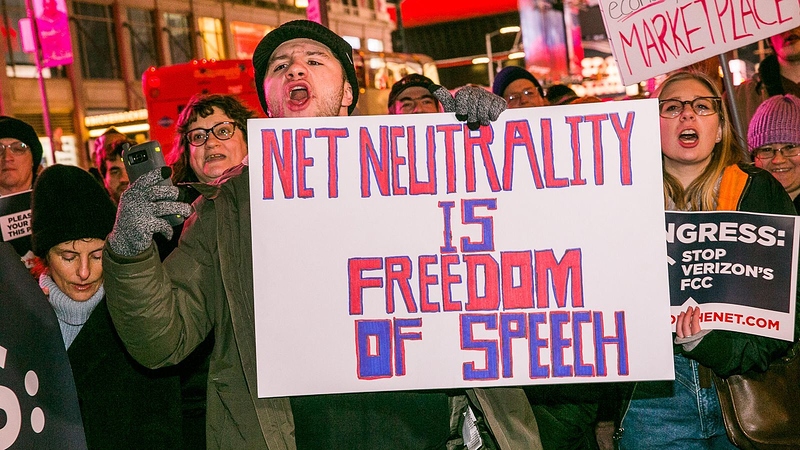At The Atlantic, Ian Bogost presents a dissenting view about the recent repeal of net-neutrality rules by the Federal Communication Commission in the US. Bogost doesn’t favor the repeal; rather, he argues that the narrow focus on net neutrality, by those both for and against it, distracts attention from a much-needed larger discussion about how the internet shapes our societies, politics, and lives. “The internet is as much the enemy as it is the hero of contemporary life,” writes Bogost. “It is not the free and open internet that must be eulogized, but the public’s blindness to its consequences.” Here’s a longer excerpt from the piece:
In her dissent—a “eulogy,” she even calls it—Rosenworcel, the FCC commissioner, writes, “the future of the internet is the future of everything. That is because there is nothing in our commercial, social, and civic lives that has been untouched by its influence or unmoved by its power.”
This sentiment is both true and terrifying. The idea that a global data network would have so much power and influence should give everyone pause. Not only because it implies that so much of public and private life is conducted by means of that infrastructure. But also because it inspires people—and businesses, and government agencies, and elected officials themselves—to press toward the worst extremes of their character. It’s undeniable that modern society relies on the internet. Less often discussed are the impacts of such a dependence. Until they reach a breaking point, like the compromise of democracy or the mass exposure of personal information.
“Internet access became the dial tone of the digital age,” Rosenworcel’s dissent continues. She understates matters. Instead, it has become this era’s heartbeat. Data has become the blood that courses through the veins of ordinary life. This is why everyone in the debate is so passionate. But it’s also worth remembering that this is just a metaphor. The world is still out there, underneath and above all the fiber-optic lines that would take it online.
Image: A protest in support of net neutrality, Dec. 7, 2017. Via CNET.
